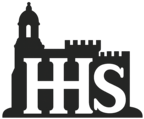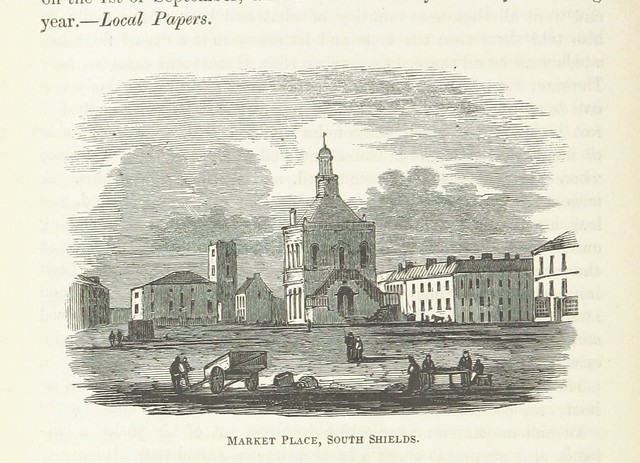 |
HOME > PROJECTS |
|---|
| < PART 1 | PART 3 > |
RUSSELL BOWLBY (1792-1865)
THE LIFE AND TIMES OF THE MEMBER OF PARLIAMENT THAT NEVER WAS!
25 JUNE 2020

PART 2: RISE OF THE RADICALS
By late July 1832 it would have been evident to Russell Bowlby that it was unlikely that he would represent South Shields as the Whig candidate in the 1832 election. In the Morning Post of Tuesday 31 July 1832, the following reference is made: -
'South Shields - Russell Bowlby ventures upon very unsafe ground in this borough' (1)
There was however another way to achieve his ambition to be the first MP for South Shields, and that was to campaign as a Radical candidate. Not large enough in numbers to be a credible third party, the Radicals emerged as a splinter group during the 1820s, challenging the political dominance of the traditional aristocratic elite and called for social reforms and a 'democratisation' of political life. This ideology was already being followed by a group of predominantly middle-class Whig MPs. During the 1830's, starting with the 1832 election, candidates were fielded as Radicals, affiliated neither to the Whigs (Liberals) nor to the Tories (Conservatives).
Russell Bowlby's espousal of Radical politics may have developed initially through his association with Christopher Wawn; a South Shields based ship-owner and fellow Radical. In 1817 he had secured an articled clerkship for the elder of his sons John Twizell Wawn (MP for South Shields in 1841) followed in 1825 by the younger, Christopher Aikenhead Wawn. This was the same year that two anonymous threatening letters, bearing South Shields and then North Shields postmarks, were sent to Mr Wawn. Robert Peel (a Conservative and later Prime Minister) appealed in the London Gazette in the name of the King for the perpetrators to be discovered, with a reward of £300 to be paid by Messrs. Bowlby and Anderson, Solicitors, South Shields, on conviction (2). I have been unable to establish whether the identity of the writer of these letters was ever discovered.
Radicalism
The emergence of the South Shields Independent Election Committee, established at John Lackland's School Room on the 23rd July, was an attempt to challenge the ascendancy of Robert Ingham and to field a Radical candidate to challenge him.
'They have the satisfaction to acquaint the 'Independent and Worthy Voters of South Shields and Westoe,' that the THIRD Person of 'unquestionable Reform Principles is Mr Thomas Place, Sand Merchant, a Resident of the Borough, possessing every requisite Qualification for the high office to which he aspires.' (3)
Russell Bowlby, I suggest, was one of the founding members of the Election Committee, but, not wanting to declare an interest, he tested the views of the electorate by writing of two letters written on 30th July and 16th August 1832 using the nom de plume of Thomas Place.
The letters are indicative of a man of education and political awareness, as indeed was Russell Bowlby. In later years he was acknowledged nationally for his commitment to the Reform movement, which I will discuss in Part 6. According to his obituary written in the Durham Directory of 1865 :-
'(he) had the reputation of being an advanced politician' (4).
There are other hints as to Bowlby as the author of the letters. It is perhaps not a coincidence that the surname of Place was shared with the political agitator and Radical Francis Place, who rose to prominence during the passing of the bills leading to the Great Reform Act. The reference to a Sand Merchant is most probably because William and Robert Anderson, leading Conservative supporters and therefore opposed to the political views of Bowlby, sold sand from the beaches on the edge of their estate at the Bents in competition to Thomas Place.
The first letter combines some of Bowlby's aspirations with those of the interest of Thomas Place. During the seventeen days' lapse between the letters James Mather seems to have taken over the Independent Election Committee as Chairman and (to use more modern phraseology) ‘parachuted' from London, Captain William Gowans a man with no connection to South Shields, an accolade of Joseph Hume.
In the second letter I have disentangled from the feelings of astonishment and indignation the actual elements of a manifesto that the writer (Russell Bowlby) was preparing to stand on.
Triennial Parliaments, Vote by Ballot, Cheap and Intelligible Law, and the Repeal of the Taxes on Knowledge' whilst being a stern opponent� of the Corn Monopoly, the East India Monopoly, the Corporation Monopoly, the Church Monopoly, the System of Impressment, and Slavery' (Part 3)
Bowlby continued by saying that there were few differences between his views and those of William Gowans, which may have been true then but there was a subtle change at the hustings. This quotation from the 'Place Letters' gives vent to the feelings of Russell Bowlby in August 1832.
'But Falstaf truly says, '' there is nothing but roguery to be found in villainous man;'' and verily I am a living instance of the correctness of the maxim. Deeply wounded by the undeserved ill-treatment I have received, - insulted by open enemies and deceived by pretended friends' (5).
The letters were published in South Shields Miscellany, a preface to the book A Decennial Supplement to South Shields, Its Past Present and Future written by Thomas Salmon, in 1856 which he records his speech, a pompous record of his achievements in the Borough. Dr Thomas Masterman Winterbottom, founder of South Shields Marine School, had been prepared to pay him the sum of £5 if he divulged the name of the real author. Salmon says He had suspected many but not dreamt of me. George B Hodgson too, records the letters (6) but makes no reference to Salmon's suggestion that he (Salmon) was the author. Perhaps Winterbottom and Hodgson disputed Salmon's intellectual ability, literary knowledge and wit to be able to compose such letters. I will discuss the ramifications of the acrimonious relationship between Salmon and Bowlby together with my conclusion that he was not the author of the letters in Part 4.
Comments
One of my reasons for writing about Russell Bowlby was to understand why he only received two votes in the 1832 election. This is widely recorded without explanation in several newspapers, in on-line commentaries, by Thomas Salmon in his book and then also by George Hodgson who I suggest used Salmon's writings as his source material. The British Newspaper Archive presents further research opportunities and it was in the Durham Advertiser that there is an unbiased account of the proceedings at the South Shields Hustings on the 11th & 12th December (7).
References
- Morning Post (Tuesday 31 July 1832, p.3)
- London Gazette (1825, p. 556).
- South Shields Miscellany, a preface in the book A Decennial Supplement to South Shields, Its Past Present and Future (Thomas Salmon, H Hewison South Shields, 1866, p.59)
- Durham Directory (1865. p.40)
- Salmon (p.59)
- The Borough of South Shields (George B. Hodgson, Andrew Reid, 1903, p. 168)
- Durham County Advertiser (Friday, 14th December 1832, p.4)